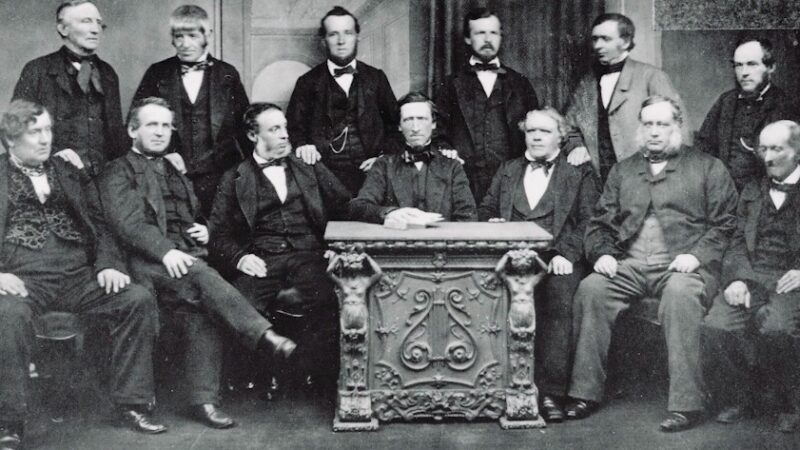
LBC’s James O’Brien recently interviewed RMT general secretary Mick Lynch on his Full Disclosure podcast. Lynch said something that, as a co-operative movement activist, I thought I had heard many times, but I then realised that I had only ever read about in books. What he said was this: “If you’re a socialist, being a trade unionist is an inherent part of that… It’s organic. You can be part of the co-operative part of the movement, you can be a trade unionist, and you can be a political person. Or you ought to be in all three! That’s the way the labour movement ought to be.”
In a forgotten collection of essays edited by Labour MP Gerald Kaufman, R.L Leonard wrote of the many “perorations” at Labour Party conference, which referred to the “three great wings of our movement marching side by side on the road to socialism”. He wrote: “Marching may not be too extravagant a term to apply to the Labour Party or the trade unions; limping would be more appropriate for the co-operative section of the Labour trinity”.
Ask yourself: When was the last time that the co-operative movement was mentioned alongside the unions and the Labour Party as an instrument for change in Britain? What is the co-operative movement doing to help individuals through the cost-of-living crisis?
Consumer co-operation has always been a simple concept, not too dissimilar to a not-for-profit corporation. Society members pool their resources in order to purchase goods and services in bulk, thus making a saving, which is then reinvested in the society, with an agreed amount distributed among members in accordance to the amount they have purchased and how much they have invested.
In the 1840s, one of the aims of the original Rochdale co-operative movement was to alleviate the poverty of the workers. In communities across the country, many people have lots of the same problems. There isn’t enough work to go around. Private sector housing is of poor quality and the rents are high. Income does not cover their expenses due to increases in food and utility prices. There is a lack of access to good, fresh food.
And anyway, a high percentage of individuals on Universal Credit have a job. If the cost-of-living crisis has proven anything, it has shown that our prosperity is very superficial and dependent on consumer items being available at a low price. People need help now, and it is doubtful that the current Conservative-led government has the inclination to provide adequate support. One possible answer is for people to start co-operative societies. These sorts of institutions were often the backbone of the real Big Society, the local institutions which offered so many an organised community life
Within the co-operative movement, a well-known experiment undertaken by the Co-operative Women’s Guild can serve as the inspiration for a new movement. It was the Guild, led by Margaret Llewelyn-Davies, which threw their support around the Coronation Street store, opened by the Sunderland Co-operative Society in October 1902. The Guild hoped to spread co-operation to one of the very poorest neighbourhoods in Britain. It sold vegetables, bread and milk and, crucially, hot food for those who could not afford fuel for cooking at home. This was not a soup kitchen or a food bank. “There is… no patronage, no church, no charity,” their literature explained, “but there is, on the other hand, a centre of real neighbourliness and absolute social equality.”
One of the reasons the co-operative movement declined from the 1960s onwards was the rise of the for-profit supermarkets. Associated with thrift and austerity, the co-operative was unable to compete with glossy new brands and modern stores. Arguably, sixty years later, people are sick and tired of supermarkets. They largely do not offer good value, and they produce huge amounts of plastic waste. If you have the time, compare the price and quality of fresh food available at your local market to that from your local supermarket.
The Covid pandemic, the cost-of-living crisis, the war in Ukraine. All these events, largely out of the control of everyday people have snowballed into a situation that can feel overwhelming. Just before the pandemic, activists in London started a movement to build small neighbourhood co-operatives in London called Co-operation Town. Enfield and Plymouth Council have now invested in the idea. Both are Labour councils. This is a good start.
I believe there is scope for much growth in this area, creating local institutions which residents have a stake in, but feeding into a larger movement for hope and resilience. The Labour Party should start co-operating for real!




More from LabourList
‘Labour’s quiet quest for democratic renewal’
‘Labour promised to make work pay. Now it must deliver for young people’
‘Council Tax shouldn’t punish those who have the least or those we owe the most’